Jakarta, MINA – The Indonesian Minister of Finance Sri Mulyani Indrawati conveyed three main strategies in developing the national halal industry.
First is the pillar of consumption of halal products. To encourage consumption, reliable and reliable certification standards are needed, ensuring and integrating halal funding and financing into the halal ecosystem including integrating Islamic social funding such as zakat is also very important to support the sustainability of the halal ecosystem.
“Certification is also expected to be affordable in terms of cost. The affordability of halal products for producers and consumers of halal products must be ensured, in addition to compliance with halal standards,” said Minister of Finance Sri Mulyani in her keynote address online at the 7th Annual International Islamic Finance Conference in Jakarta on Tuesday.
The second pillar that is no less important is trade. It is important to note that (international) trade is an integral part of the halal economy.
Also Read: Indonesia Ready to Support Gaza Reconstruction After Hamas-Israel Ceasefire
“As a net-exporter for most of the halal economic categories, Indonesia has a great opportunity to increase its export capacity and trade balance performance,” he said.
In addition, continued the Minister of Finance, Indonesia can also improve its trade balance performance through import substitution.
In the context of encouraging trade, Indonesia can take advantage of the potential trade in halal products, both in Muslim and non-Muslim countries. This can be done through trade, promotion and strengthening international exposure to Indonesian halal products.
The third pillar is investment in the halal economy. Within this pillar there are five potential sectors that need to be considered, namely food and beverages, tourism, fashion, cosmetics, and pharmaceuticals.
Also Read: Indonesian Foreign Minister to Visit North Korea, First Since 2013
In order to realize adequate investment in these potential sectors, the Government should assist the private sector in creating an enabling environment, among others by simplifying the business licensing process and assisting small and medium enterprises (SMEs) in promoting halal products by providing access to events or trade fairs. national and international.
In addition, the Government has also issued Green Sukuk and Cash Waqf Linked Sukuk which are expected to be integrated with efforts to develop the halal industry in Indonesia and develop the scheme.
“The government has also supported the performance of the halal industry by involving all stakeholders including consumers, investors and business owners,” concluded Minister of Finance Sri Mulyani.
Government support for the performance of the halal industry includes the development of halal values, institutions and policies. All these steps are taken to ensure that the industry adopts trusted and reliable Halal standards.
Also Read: Indonesian Government Refuses to Issue Visas for Israeli Gymnasts
The Ministry of Finance (Ministry of Finance) again held the 7th Annual Islamic Finance International Conference (AIFC) online on Tuesday-Wednesday, 29 and 30 August 2023 which discussed the theme “The Role of Islamic Finance to Overcome Global Uncertainty Through the Halal Economy Sustainable and Inclusive”.
AIFC which has been held continuously for the last seven years shows the Government’s great commitment to realizing the potential of Indonesian Islamic finance.
At the end of his speech, the Minister of Finance said that AIFC as a discourse platform for policy makers, academics, the private sector and other stakeholders is expected to further assist the Government’s efforts and provide concrete recommendations to properly and efficiently empower the halal industry.
AIFC’s topic is also in line with Indonesia’s leadership priorities in ASEAN to empower ASEAN as a growth center. (T/RE1/P2)
Also Read: AWG Rejects Israeli Athletes’ Arrival: Sports Must Not Legitimize Zionism
Mi’raj News Agency (MINA)






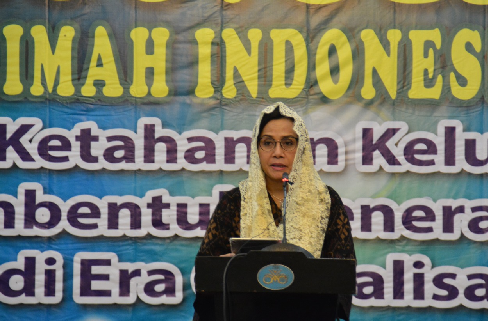





![Israeli tanks and APC’s gather by the Israeli – Lebanese border. Amid Israel’s escalating campaign against Hezbollah in Lebanon on September 30, 2024. [Erik Marmor/Getty Images]](https://en.minanews.net/wp-content/uploads/2024/10/IMG_20241001_203226-300x197.jpg)



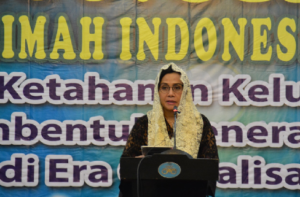
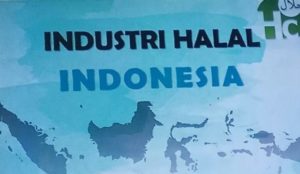








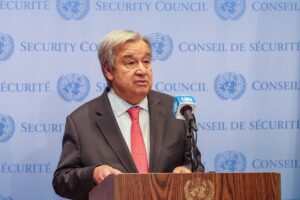
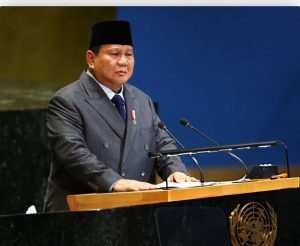








 Mina Indonesia
Mina Indonesia Mina Arabic
Mina Arabic